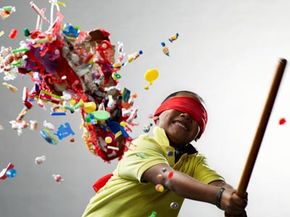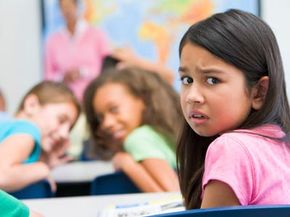Key Takeaways
- While children may seem to have stress-free lives filled with play, their bad days feel just as bad as adults' bad days.
- Happiness levels vary throughout life, often dipping during adolescence but increasing as people age; however, measuring happiness is complex and subjective.
- Social relationships, physical health and mental well-being significantly impact children's happiness.
From an adult's point of view, kids have it made. What do they have to be stressed out about? Pre-adolescent children spend their days playing and goofing off, all of their needs are provided for, and they don't have to worry about jobs, responsibilities or taking care of kids. Pretty sweet deal, right? Who wouldn't be jumping for joy?
But from a child's perspective, a bad day is still a bad day, and it feels just as bad as an adult's bad day. Think about all your worries for a moment. Are they any less real or stressful just because someone out there you don't know has even bigger problems that you don't have to worry about?
Advertisement
It is true, however, that we feel different levels of happiness at different times in our lives. In the United States, we tend to get happier as we age. Happiness takes a dip in adolescence, and on average we are happier at 25 than we are at 18 [source: United Press International].
Measuring happiness depends greatly on self-assessments for adults, and in children -- especially young children -- parents' assessments of their children's happiness are also factored in. This makes an inexact science even more inexact. Kids may have all kinds of reasons not to be forthright about how they're feeling, and surveys are likely to be skewed toward how a kid feels that day -- especially if it's report-card day. Parents, too, aren't always in the loop about their kids' feelings, or may have reasons of their own for over-reporting their children's level of happiness.
Studies indicate that the very act of raising children makes you less happy than your childless peers, and that parents become happier when their children have grown up and left the home, so it may be the case that children are happier because they have sucked it straight out of their parents. And no wonder: It can cost around $240,000 to get a kid from the nursery out of your house, and that's not even including the price of higher education [source: Newsweek].
We'll look at some different factors that may make a difference in the happiness levels of children and adults, starting first with a topic more associated with the young: fun.
Advertisement













